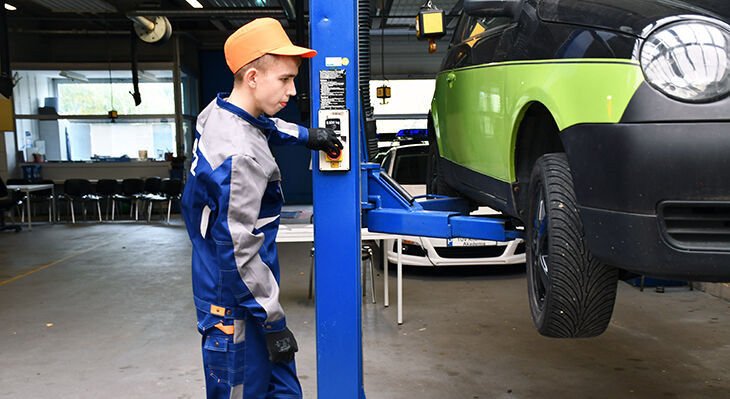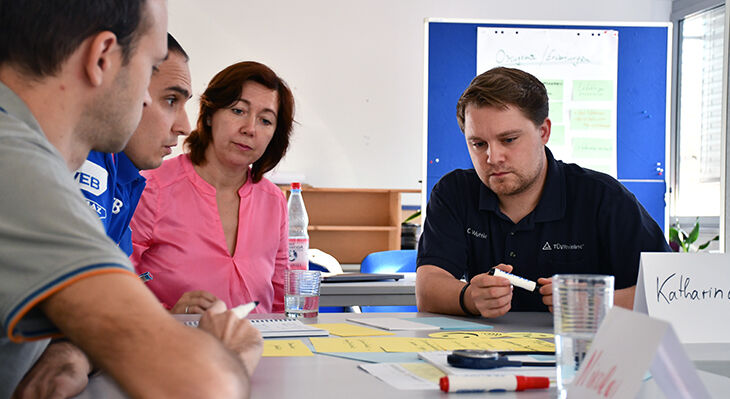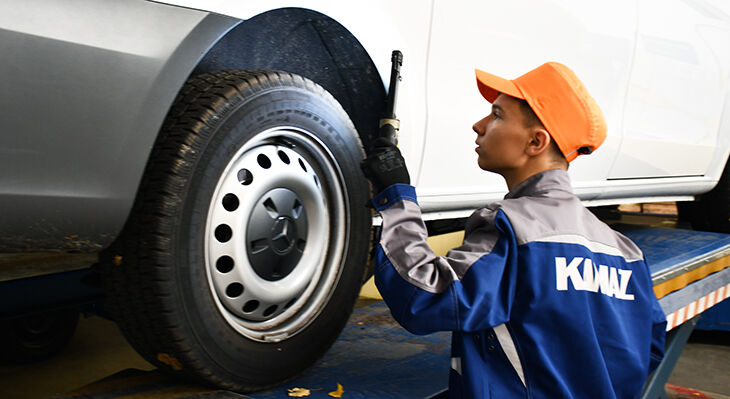Passed! Trainee motor vehicle mechatronics technicians from Germany and Russia score points in demonstration examinations
Why are common training and examination standards important when it comes to the quality of vocational education and training? A film about German–Russian demonstration examinations in the field of mechatronics has the answer.

The German trainees and their Russian peers have one thing in common: they all want to become motor vehicle mechatronics technicians. Both groups are currently undergoing their training, which they will soon have completed. The German trainees are from Torpedo-Gruppe GmbH and Fahrzeugwerk Lueg AG and the future Russian motor vehicle mechatronics technicians are from KAMAZ, the Russian automotive company that is best known for its lorries. In autumn 2019, the trainees proved what they can do at joint demonstration examinations in Berlin. The examinations were filmed and the video is now available in German, English and Russian.
On the GOVET YouTube Channel you can find the film in German and Russian.
Realising the joint examinations required quite some preparation time. Experts from the two countries founded a joint examination commission. They took a close look at all the relevant training and examination regulations and compared them. Based on this, they then put together a simulated final theoretical and practical examination. The candidates took the examination in the respective other country in front of an independent commission. In Germany, this took place at TÜV Rheinland in Berlin and in Russia at KAMAZ in Naberezhnye Chelny. A certificate of participation certifies that they completed the simulated examination. The film demonstrates once again that shared training and examination standards are key and that, if they are based on a good mechanism, standards even work across country borders. The project was extremely valuable for the trainees and their trainers. They were able to look beyond their own horizons and get to know working practices in a different country. Now they will take intercultural experiences with them into their professional lives.
The cooperation project was conducted by the DLR Projektträger and TÜV Rheinland Akademie GmbH on behalf of BMBF. The Russian cooperation partners were the National Agency for the Development of Qualifications (NARK) and the Russian professional association for motor vehicles. The Agency is based at the Russian Federation’s leading business and industrial association, supports projects like this one and gains insights into the quality of training.
In Russia, the mechanism of independent examinations is already incorporated into vocational education and training throughout the country and the examinations are comparable. In terms of implementation, this means the professional associations share information and communicate with one another about the qualification requirements in the private sector and on the labour market.

